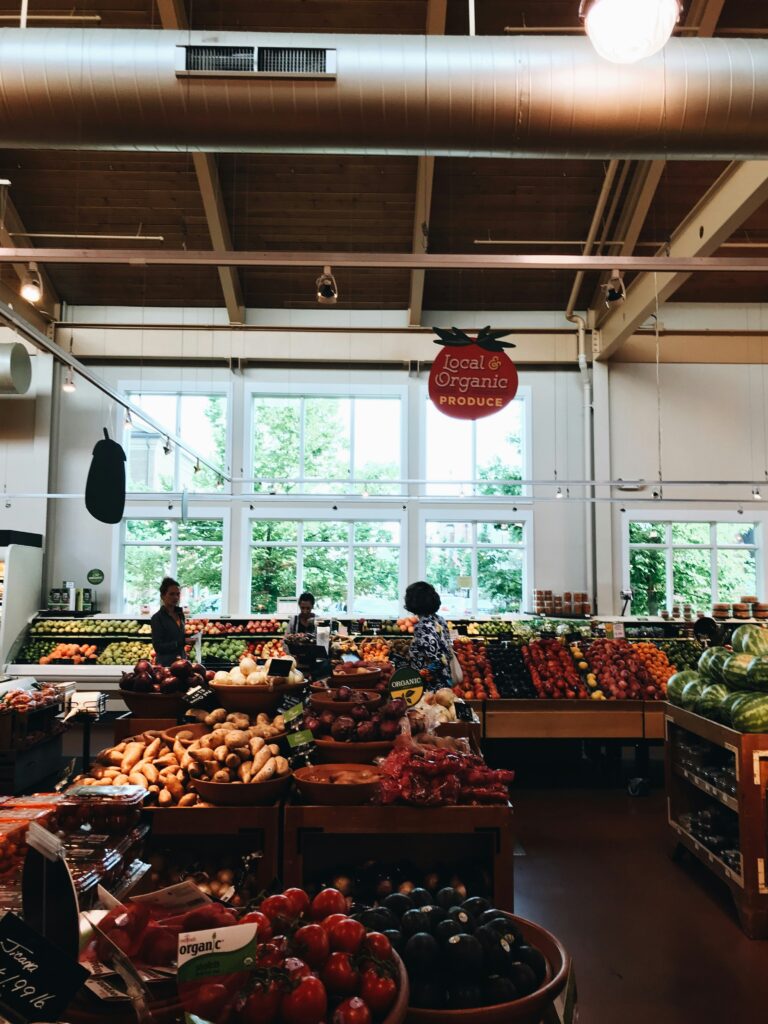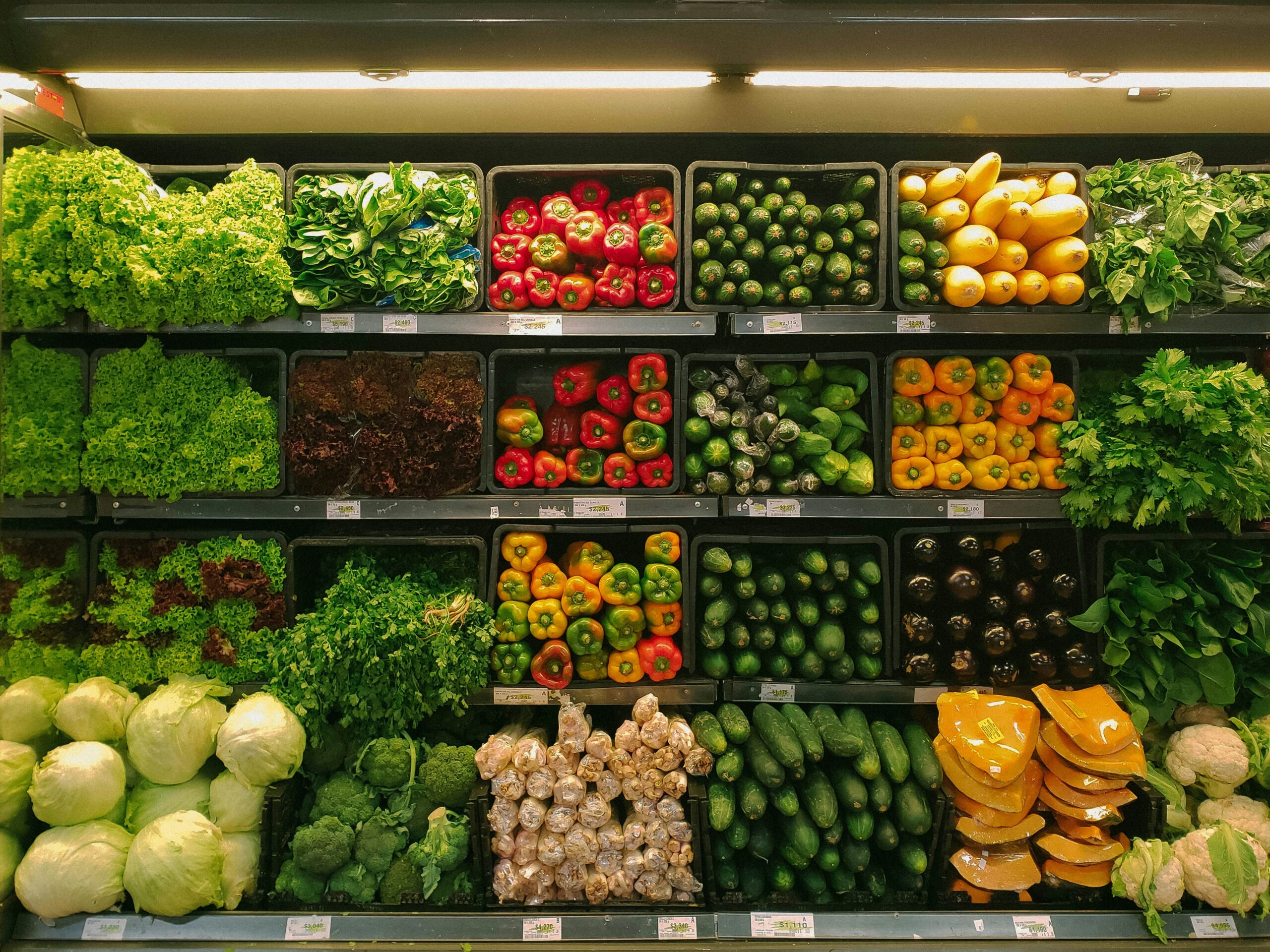Grocery shopping can be both exciting and overwhelming. With aisles packed with options, it’s easy to feel lost, especially when you’re trying to make more balanced choices for yourself and your family. As a dietitian, I’ve seen how smart shopping can transform your diet, improve your health, and even save you money. Here’s 12 tips to help you navigate the grocery store with confidence and fill your cart with nutritious foods.
1. Plan Ahead
Before you head to the store, take some time to plan your meals and snacks for the week. This helps you avoid impulse buys and ensures you have all the ingredients you need. Break down your list into categories like produce, proteins, dairy, grains, and pantry staples. Stick to your list to save time and avoid purchasing unhealthy snacks or unnecessary items.
If you are having trouble coming up with a meal plan, consider our meal planning service!
2. Shop the Perimeter First
Most grocery stores are designed with fresh, whole foods like fruits, vegetables, meats, and dairy along the perimeter. By shopping the outer aisles first, you’ll fill your cart with nutrient-dense items before moving to the inner aisles where the more processed foods tend to be located. This strategy helps prioritize fresh, whole foods over highly processed options.
This does not mean that that inside aisles are off limits! Do your best to spend most of your time on the outside.
3. Focus on Whole Foods
Whole foods—those that are minimally processed and closest to their natural state—should make up the bulk of your cart. Think fresh fruits, vegetables, lean meats, fish, whole grains, and legumes. These foods are packed with essential nutrients, fiber, and healthy fats that support overall health.
4. Read Labels
When you do venture into the inner aisles, take the time to read nutrition labels. Look for products with a short list of recognizable ingredients. Pay attention to added sugars, sodium, and saturated fats. As a general rule, choose products with higher fiber and protein content and lower added sugars and sodium.
5. Don’t be Fooled by Marking Claims!
Terms like “natural,” “healthy”, or “light” can be misleading. Just because a product carries these labels doesn’t necessarily mean it’s a good choice. For example, organic cookies are still cookies, often high in added sugar. Focus on the ingredient list and nutrition facts rather than marketing buzzwords.
6. Shop in Season
Buying fruits and vegetables that are in season not only ensures you’re getting the freshest produce, but it can also save you money. Seasonal produce is often more affordable and flavorful. Consider visiting local farmers’ markets for fresh, seasonal options. Check out our post on local, seasonal foods in the Concord area!
7. Buy in Bulk Wisely
Bulk items can be a great way to save money on staples like grains, nuts, seeds, and legumes. However, only buy what you’ll use to avoid waste. Store bulk items properly to maintain freshness and prevent spoilage.
8. Consider Frozen Options
Frozen fruits and vegetables can be just as nutritious as fresh ones, especially when fresh produce is out of season or too expensive. Look for options without added sugars, syrups, or sodium. Frozen berries, peas, and spinach, for example, are convenient and nutrient-rich choices to keep on hand.
When it comes to canned items, do your best to find no-sodium or low-salt products, and always rinse before use.
9. Stock Up on Staples
Keep your pantry stocked with healthy staples that make it easy to whip up nutritious meals. Items like whole-grain pasta, brown rice, quinoa, canned beans, and tomatoes, as well as herbs and spices, can form the base of many balanced dishes. Having these ingredients on hand reduces the temptation to order takeout, even on busy nights.
10. Be Mindful of Portions
Even whole foods can lead to weight gain if eaten in excess. Pay attention to portion sizes, especially when buying in bulk. Pre-portioning snacks into smaller containers can help prevent overeating. This is especially helpful when consider calorie-dense foods like nuts and seeds.
11. Don’t Shop Hungry
It’s a simple tip, but it works! Shopping on an empty stomach can lead to impulse buys, particularly of ‘extras’ like sweets or snack foods. Eat a balanced snack or meal before you go to the store to help you stick to your list.
12. Involve the Family!
If possible, involve your family in the shopping process. Let kids pick out new fruits or vegetables to try, or have them help you find items on your list. This can be a great way to teach them about balanced eating and make grocery shopping a more enjoyable experience for everyone.
Grocery shopping doesn’t have to be a daunting task. With a little planning and mindful choices, you can fill your cart with nourishing foods that support your health goals. Remember, the foods you bring home set the foundation for your meals and snacks, so make each trip to the store count. Happy shopping!
If you’d like to learn more about making a grocery list, or reading the nutrition label, check out our food shopping 101 blog post here.



